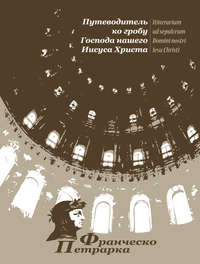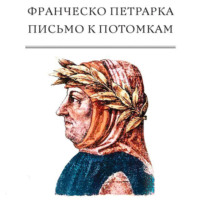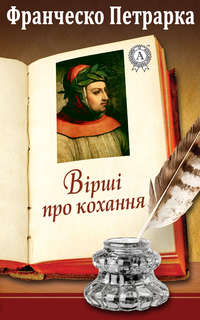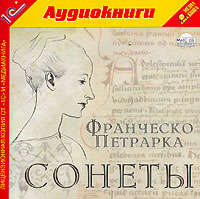 полная версия
полная версияThe Sonnets, Triumphs, and Other Poems of Petrarch
Father Dionisio, upon his arrival at Naples, impressed the King with so favourable an opinion of Petrarch that Robert wrote a letter to our poet, enclosing an epitaph of his Majesty's own composition, on the death of his niece Clementina. This letter is unhappily lost; but the answer to it is preserved, in which Petrarch tells the monarch that his epitaph rendered his niece an object rather of envy than of lamentation. "O happy Clementina!" says the poet, "after passing through a transitory life, you have attained a double immortality, one in heaven, and another on earth." He then compares the posthumous good fortune of the princess to that of Achilles, who had been immortalized by Homer. It is possible that King Robert's letter to Petrarch was so laudatory as to require a flattering answer. But this reverberated praise is rather overstrained.
Petrarch was now intent on obtaining the honour of Poet Laureate. His wishes were at length gratified, and in a manner that made the offer more flattering than the crown itself.
Whilst he still remained at Vaucluse, at nine o'clock in the morning of the 1st of September, 1340, he received a letter from the Roman Senate, pressingly inviting him to come and receive the crown of Poet Laureate at Rome. He must have little notion of a poet's pride and vanity, who cannot imagine the flushed countenance, the dilated eyes, and the joyously-throbbing heart of Petrarch, whilst he read this letter. To be invited by the Senate of Rome to such an honour might excuse him for forgetting that Rome was not now what she had once been, and that the substantial glory of his appointment was small in comparison with the classic associations which formed its halo.
As if to keep up the fever of his joy, he received the same day, in the afternoon, at four o'clock, another letter with the same offer, from Roberto Bardi, Chancellor of the University of Paris, in which he importuned him to be crowned as Poet Laureate at Paris. When we consider the poet's veneration for Rome, we may easily anticipate that he would give the preference to that city. That he might not, however, offend his friend Roberto Bardi and the University of Paris, he despatched a messenger to Cardinal Colonna, asking his advice upon the subject, pretty well knowing that his patron's opinion would coincide with his own wishes. The Colonna advised him to be crowned at Rome.
The custom of conferring this honour had, for a long time, been obsolete. In the earliest classical ages, garlands were given as a reward to valour and genius. Virgil exhibits his conquerors adorned with them. The Romans adopted the custom from Greece, where leafy honours were bestowed on victors at public games. This coronation of poets, it is said, ceased under the reign of the Emperor Theodosius. After his death, during the long subsequent barbarism of Europe, when literature produced only rhyming monks, and when there were no more poets to crown, the discontinuance of the practice was a natural consequence.
At the commencement of the thirteenth century, according to the Abbé Resnel, the universities of Europe began to dispense laurels, not to poets, but to students distinguished by their learning. The doctors in medicine, at the famous university of Salerno, established by the Emperor Frederic II., had crowns of laurel put upon their heads. The bachelors also had their laurels, and derived their name from a baculus, or stick, which they carried.
Cardinal Colonna, as we have said, advised him, "nothing loth," to enjoy his coronation at Rome. Thither accordingly he repaired early in the year 1341. He embarked at Marseilles for Naples, wishing previously to his coronation to visit King Robert, by whom he was received with all possible hospitality and distinction.
Though he had accepted the laurel amidst the general applause of his contemporaries, Petrarch was not satisfied that he should enjoy this honour without passing through an ordeal as to his learning, for laurels and learning had been for one hundred years habitually associated in men's minds. The person whom Petrarch selected for his examiner in erudition was the King of Naples. Robert the Good, as he was in some respects deservedly called, was, for his age, a well-instructed man, and, for a king, a prodigy. He had also some common sense, but in classical knowledge he was more fit to be the scholar of Petrarch than his examiner. If Petrarch, however, learned nothing from the King, the King learned something from Petrarch. Among the other requisites for examining a Poet Laureate which Robert possessed, was an utter ignorance of poetry. But Petrarch couched his blindness on the subject, so that Robert saw, or believed he saw, something useful in the divine art. He had heard of the epic poem, Africa, and requested its author to recite to him some part of it. The King was charmed with the recitation, and requested that the work might be dedicated to him. Petrarch assented, but the poem was not finished or published till after King Robert's death.
His Neapolitan Majesty, after pronouncing a warm eulogy on our poet, declared that he merited the laurel, and had letters patent drawn up, by which he certified that, after a severe examination (it lasted three days), Petrarch was judged worthy to receive that honour in the Capitol. Robert wished him to be crowned at Naples; but our poet represented that he was desirous of being distinguished on the same theatre where Virgil and Horace had shone. The King accorded with his wishes; and, to complete his kindness, regretted that his advanced age would not permit him to go to Rome, and crown Petrarch himself. He named, however, one of his most eminent courtiers, Barrilli, to be his proxy. Boccaccio speaks of Barrilli as a good poet; and Petrarch, with exaggerated politeness, compares him to Ovid.
When Petrarch went to take leave of King Robert, the sovereign, after engaging his promise that he would visit him again very soon, took off the robe which he wore that day, and, begging Petrarch's acceptance of it, desired that he might wear it on the day of his coronation. He also bestowed on him the place of his almoner-general, an office for which great interest was always made, on account of the privileges attached to it, the principal of which were an exemption from paying the tithes of benefices to the King, and a dispensation from residence.
Petrarch proceeded to Rome, where he arrived on the 6th of April, 1341, accompanied by only one attendant from the court of Naples, for Barrilli had taken another route, upon some important business, promising, however, to be at Rome before the time appointed. But as he had not arrived on the 7th, Petrarch despatched a messenger in search of him, who returned without any information. The poet was desirous to wait for his arrival; but Orso, Count of Anguillara, would not suffer the ceremony to be deferred. Orso was joint senator of Rome with Giordano degli Orsini; and, his office expiring on the 8th of April, he was unwilling to resign to his successor the pleasure of crowning so great a man.
Petrarch was afterwards informed that Barrilli, hastening towards Rome, had been beset near Anaguia by robbers, from whom he escaped with difficulty, and that he was obliged for safety to return to Naples. In leaving that city, Petrarch passed the tomb traditionally said to be that of Virgil. His coronation took place without delay after his arrival at Rome.
The morning of the 8th of April, 1341, was ushered in by the sound of trumpets; and the people, ever fond of a show, came from all quarters to see the ceremony. Twelve youths selected from the best families of Rome, and clothed in scarlet, opened the procession, repeating as they went some verses, composed by the poet, in honour of the Roman people. They were followed by six citizens of Rome, clothed in green, and bearing crowns wreathed with different flowers. Petrarch walked in the midst of them; after him came the senator, accompanied by the first men of the council. The streets were strewed with flowers, and the windows filled with ladies, dressed in the most splendid manner, who showered perfumed waters profusely on the poet9. He all the time wore the robe that had been presented to him by the King of Naples. When they reached the Capitol, the trumpets were silent, and Petrarch, having made a short speech, in which he quoted a verse from Virgil, cried out three times, "Long live the Roman people! long live the Senators! may God preserve their liberty!" At the conclusion of these words, he knelt before the senator Orso, who, taking a crown of laurel from his own head, placed it on that of Petrarch, saying, "This crown is the reward of virtue." The poet then repeated a sonnet in praise of the ancient Romans. The people testified their approbation by shouts of applause, crying, "Long flourish the Capitol and the poet!" The friends of Petrarch shed tears of joy, and Stefano Colonna, his favourite hero, addressed the assembly in his honour.
The ceremony having been finished at the Capitol, the procession, amidst the sound of trumpets and the acclamations of the people, repaired thence to the church of St. Peter, where Petrarch offered up his crown of laurel before the altar. The same day the Count of Anguillara caused letters patent to be delivered to Petrarch, in which the senators, after a flattering preamble, declared that he had merited the title of a great poet and historian; that, to mark his distinction, they had put upon his head a laurel crown, not only by the authority of Kong Robert, but by that of the Roman Senate and people; and that they gave him, at Rome and elsewhere, the privilege to read, to dispute, to explain ancient books, to make new ones, to compose poems, and to wear a crown according to his choice, either of laurel, beech, or myrtle, as well as the poetic habit. At that time a particular dress was affected by the poets. Dante was buried in this costume.
Petrarch continued only a few days at Rome after his coronation; but he had scarcely departed when he found that there were banditti on the road waiting for him, and anxious to relieve him of any superfluous wealth which he might have about him. He was thus obliged to return to Rome with all expedition; but he set out the following day, attended by a guard of armed men, and arrived at Pisa on the 20th of April.
From Pisa he went to Parma, to see his friend Azzo Correggio, and soon after his arrival he was witness to a revolution in that city of which Azzo had the principal direction. The Scalas, who held the sovereignty of Parma, had for some time oppressed the inhabitants with exorbitant taxes, which excited murmurs and seditions. The Correggios, to whom the city was entrusted in the absence of Mastino della Scala, profited by the public discontent, hoisted the flag of liberty, and, on the 22nd of May, 1341, drove out the garrison, and made themselves lords of the commonwealth. On this occasion, Azzo has been accused of the worst ingratitude to his nephews, Alberto and Mastino. But, if the people were oppressed, he was surely justified in rescuing them from misgovernment. To a great degree, also, the conduct of the Correggios sanctioned the revolution. They introduced into Parma such a mild and equitable administration as the city had never before experienced. Some exceptionable acts they undoubtedly committed; and when Petrarch extols Azzo as another Cato, it is to be hoped that he did so with some mental reservation. Petrarch had proposed to cross the Alps immediately, and proceed to Avignon; but he was prevailed upon by the solicitations of Azzo to remain some time at Parma. He was consulted by the Correggios on their most important affairs, and was admitted to their secret councils. In the present instance, this confidence was peculiarly agreeable to him; as the four brothers were, at that time, unanimous in their opinions; and their designs were all calculated to promote the welfare of their subjects.
Soon after his arrival at Parma, he received one of those tokens, of his popularity which are exceedingly expressive, though they come from a humble admirer. A blind old man, who had been a grammar-school master at Pontremoli, came to Parma, in order to pay his devotions to the laureate. The poor man had already walked to Naples, guided in his blindness by his only son, for the purpose of finding Petrarch. The poet had left that city; but King Robert, pleased with his enthusiasm, made him a present of some money. The aged pilgrim returned to Pontremoti, where, being informed that Petrarch was at Parma, he crossed the Apennines, in spite of the severity of the weather, and travelled thither, having sent before him a tolerable copy of verses. He was presented to Petrarch, whose hand he kissed with devotion and exclamations of joy. One day, before many spectators, the blind man said to Petrarch, "Sir, I have come far to see you." The bystanders laughed, on which the old man replied, "I appeal to you, Petrarch, whether I do not see you more clearly and distinctly than these men who have their eyesight." Petrarch gave him a kind reception, and dismissed him with a considerable present.
The pleasure which Petrarch had in retirement, reading, and reflection, induced him to hire a house on the outskirts of the city of Parma, with a garden, beautifully watered by a stream, a rus in urbe, as he calls it; and he was so pleased with this locality, that he purchased and embellished it.
His happiness, however, he tells us, was here embittered by the loss of some friends who shared the first place in his affections. One of these was Tommaso da Messina, with whom he had formed a friendship when they were fellow-students at Bologna, and ever since kept up a familiar correspondence. They were of the same age, addicted to the same pursuits, and imbued with similar sentiments. Tommaso wrote a volume of Latin poems, several of which were published after the invention of printing. Petrarch, in his Triumphs of Love, reckons him an excellent poet.
This loss was followed by another which affected Petrarch still more strongly. Having received frequent invitations to Lombes from the Bishop, who had resided some time in his diocese, Petrarch looked forward with pleasure to the time when he should revisit him. But he received accounts that the Bishop was taken dangerously ill. Whilst his mind was agitated by this news, he had the following dream, which he has himself related. "Methought I saw the Bishop crossing the rivulet of my garden alone. I was astonished at this meeting, and asked him whence he came, whither he was going in such haste, and why he was alone. He smiled upon me with his usual complacency, and said, 'Remember that when you were in Gascony the tempestuous climate was insupportable to you. I also am tired of it. I have quitted Gascony, never to return, and I am going to Rome.' At the conclusion of these words, he had reached the end of the garden, and, as I endeavoured to accompany him, he in the kindest and gentlest manner waved his hand; but, upon my persevering, he cried out in a more peremptory manner, 'Stay! you must not at present attend me.' Whilst he spoke these words, I fixed my eyes upon him, and saw the paleness of death upon his countenance. Seized with horror, I uttered a loud cry, which awoke me. I took notice of the time. I told the circumstance to all my friends; and, at the expiration of five-and-twenty days, I received accounts of his death, which happened in the very same night in winch he had appeared to me."
On a little reflection, this incident will not appear to be supernatural. That Petrarch, oppressed as he was with anxiety about[Pg xlviii] his friend, should fall into fanciful reveries during his sleep, and imagine that he saw him in the paleness of death, was nothing wonderful—nay, that he should frame this allegory in his dream is equally conceivable. The sleeper's imagination is often a great improvisatore. It forms scenes and stories; it puts questions, and answers them itself, all the time believing that the responses come from those whom it interrogates.
Petrarch, deeply attached to Azzo da Correggio, now began to consider himself as settled at Parma, where he enjoyed literary retirement in the bosom of his beloved Italy. But he had not resided there a year, when he was summoned to Avignon by orders he considered that he could not disobey. Tiraboschi, and after him Baldelli, ascribe his return to Avignon to the commission which he received in 1342, to go as advocate of the Roman people to the new Pope, Clement VI., who had succeeded to the tiara on the death of Benedict XII., and Petrarch's own words coincide with what they say. The feelings of joy with which Petrarch revisited Avignon, though to appearance he had weaned himself from Laura, may be imagined. He had friendship, however, if he had not love, to welcome him. Here he met, with reciprocal gladness, his friends Socrates and Lælius, who had established themselves at the court of the Cardinal Colonna. "Socrates," says De Sade, "devoted himself entirely to Petrarch, and even went with him to Vaucluse." It thus appears that Petrarch had not given up his peculium on the Sorgue, nor had any one rented the field and cottage in his absence.
Benedict's successor, Clement VI., was conversant with the world, and accustomed to the splendour of courts. Quite a contrast to the plain rigidity of Benedict, he was courteous and munificent, but withal a voluptuary; and his luxury and profusion gave rise to extortions, to rapine, and to boundless simony. His artful and arrogant mistress, the Countess of Turenne, ruled him so absolutely, that all places in his gift, which had escaped the grasp of his relations, were disposed of through her interest; and she amassed great wealth by the sale of benefices.
The Romans applied to Clement VI., as they had applied to Benedict XII., imploring him to bring back the sacred seat to their capital; and they selected Petrarch to be among those who should present their supplication. Our poet appealed to his Holiness on this subject, both in prose and verse. The Pope received him with smiles, complimented him on his eloquence, bestowed on him the priory of Migliorino, but, for the present, consigned his remonstrance to oblivion.
In this mission to Clement at Avignon there was joined with Petrarch the famous Nicola Gabrino, better known by the name Cola di Rienzo, who, very soon afterwards, attached the history of Rome to his biography. He was for the present comparatively little known; but Petrarch, thus coming into connection with this extraordinary person, was captivated with his eloquence, whilst Clement complimented Rienzo, admitted him daily to his presence, and conversed with him on the wretched state of Rome, the tyranny of the nobles, and the sufferings of the people.
Cola and Petrarch were the two chiefs of this Roman embassy to the Pope; and it appears that the poet gave precedency to the future tribune on this occasion. They both elaborately exposed the three demands of the Roman people, namely, that the Pope, already the acknowledged patron of Rome, should assume the title and functions of its senator, in order to extinguish the civil wars kindled by the Roman barons; that he should return to his pontifical chair on the banks of the Tiber; and that he should grant permission for the jubilee, instituted by Boniface VIII., to be held every fifty years, and not at the end of a century, as its extension to the latter period went far beyond the ordinary duration of human life, and cut off the greater part of the faithful from enjoying the institution.
Clement praised both orators, and conceded that the Romans should have a jubilee every fifty years; but he excused himself from going to Rome, alleging that he was prevented by the disputes between France and England. "Holy Father," said Petrarch, "how much it were to be wished that you had known Italy before you knew France." "I wish I had," said the Pontiff, very coldly.
Petrarch gave vent to his indignation at the papal court in a writing, entitled, "A Book of Letters without a Title," and in several severe sonnets. The "Liber Epistolarum sine Titulo" contains, as it is printed in his works (Basle edit., 1581), eighteen letters, fulminating as freely against papal luxury and corruption as if they had been penned by Luther or John Knox. From their contents, we might set down Petrarch as the earliest preacher of the Reformation, if there were not, in the writings of Dante, some passages of the same stamp. If these epistles were really circulated at the time when they were written, it is matter of astonishment that Petrarch never suffered from any other flames than those of love; for many honest reformers, who have been roasted alive, have uttered less anti-papal vituperation than our poet; nor, although Petrarch would have been startled at a revolution in the hierarchy, can it be doubted that his writings contributed to the Reformation.
It must be remembered, at the same time, that he wrote against the church government of Avignon, and not that of Rome. He compares Avignon with the Assyrian Babylon, with Egypt under the mad tyranny of Cambyses; or rather, denies that the latter empires can be held as parallels of guilt to the western Babylon; nay, he tells us that neither Avernus nor Tartarus can be confronted with this infernal place.
"The successors of a troop of fishermen," he says, "have forgotten their origin. They are not contented, like the first followers of Christ, who gained their livelihood by the Lake of Gennesareth, with modest habitations, but they must build themselves splendid palaces, and go about covered with gold and purple. They are fishers of men, who catch a credulous multitude, and devour them for their prey." This "Liber Epistolarum" includes some descriptions of the debaucheries of the churchmen, which are too scandalous for translation. They are nevertheless curious relics of history.
In this year, Gherardo, the brother of our poet, retired, by his advice, to the Carthusian monastery of Montrieux, which they had both visited in the pilgrimage to Baume three years before. Gherardo had been struck down with affliction by the death of a beautiful woman at Avignon, to whom he was devoted. Her name and history are quite unknown, but it may be hoped, if not conjectured, that she was not married, and could be more liberal in her affections than the poet's Laura.
Amidst all the incidents of this period of his life, the attachment of Petrarch to Laura continued unabated. It appears, too, that, since his return from Parma, she treated him with more than wonted complacency. He passed the greater part of the year 1342 at Avignon, and went to Vaucluse but seldom and for short intervals.
In the meantime, love, that makes other people idle, interfered not with Petrarch's fondness for study. He found an opportunity of commencing the study of Greek, and seized it with avidity. That language had never been totally extinct in Italy; but at the time on which we are touching, there were not probably six persons in the whole country acquainted with it. Dante had quoted Greek authors, but without having known the Greek alphabet. The person who favoured Petrarch with this coveted instruction was Bernardo Barlaamo, a Calabrian monk, who had been three years before at Avignon, having come as envoy from Andronicus, the eastern Emperor, on pretext of proposing a union between the Greek and Roman churches, but, in reality for the purpose of trying to borrow money from the Pope for the Emperor. Some of Petrarch's biographers date his commencement of the study of Greek from the period of Barlaamo's first visit to Avignon; but I am inclined to postpone it to 1342, when Barlaamo returned to the west and settled at Avignon. Petrarch began studying Greek by the reading of Plato. He never obtained instruction sufficient to make him a good Grecian, but he imbibed much of the spirit of Plato from the labour which he bestowed on his works. He was very anxious to continue his Greek readings with Barlaamo; but his stay in Avignon was very short; and, though it was his interest to detain him as his preceptor, Petrarch, finding that he was anxious for a settlement in Italy, helped him to obtain the bishopric of Geraci, in Calabria.
The next year was memorable in our poet's life for the birth of his daughter Francesca. That the mother of this daughter was the same who presented him with his son John there can be no doubt. Baldelli discovers, in one of Petrarch's letters, an obscure allusion to her, which seems to indicate that she died suddenly after the birth of Francesca, who proved a comfort to her father in his old age.









